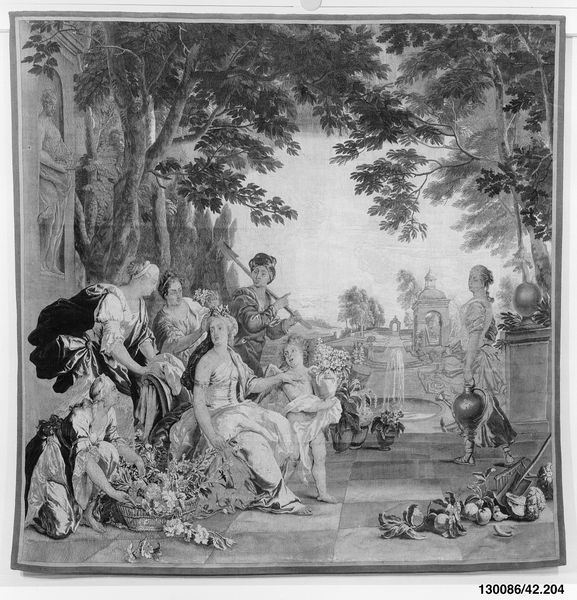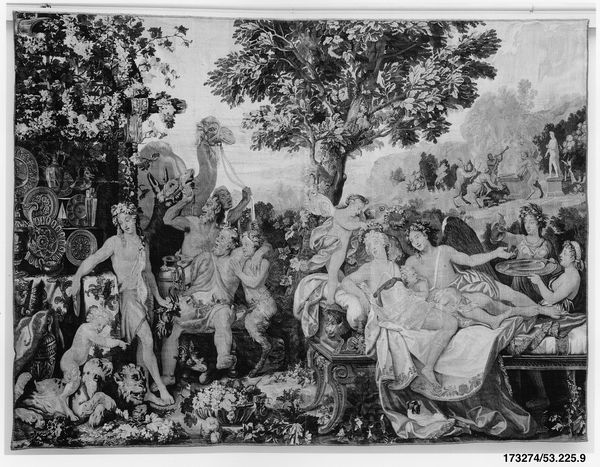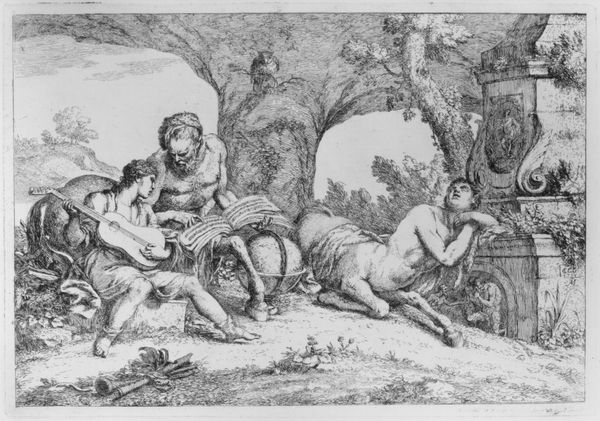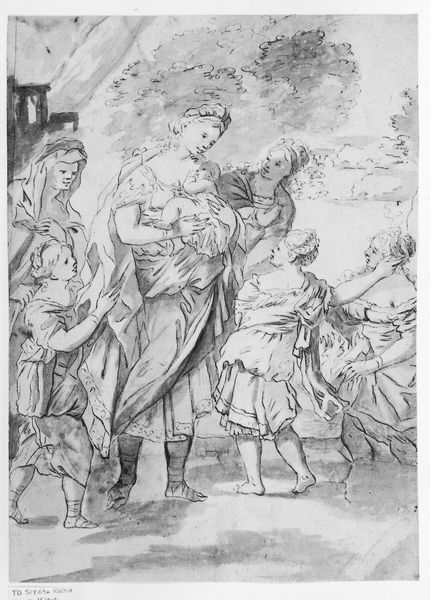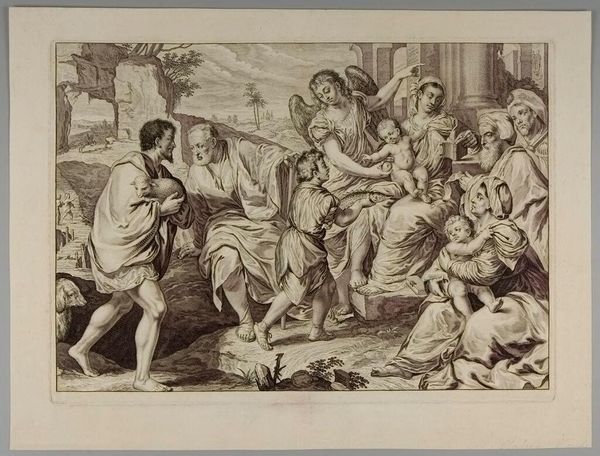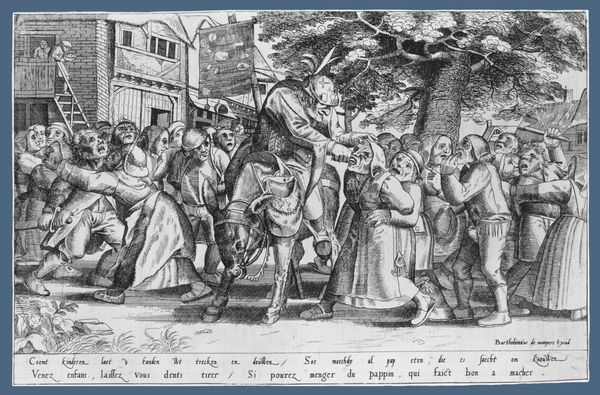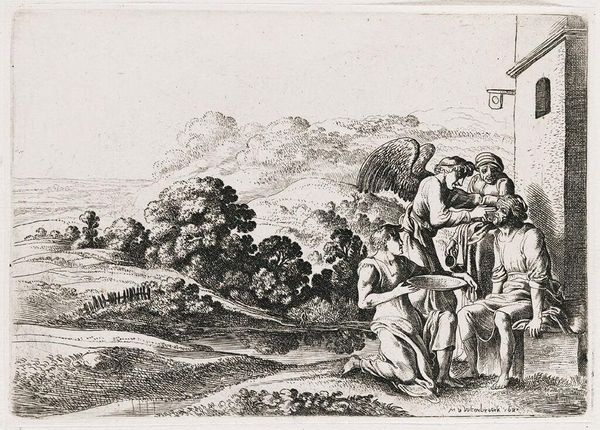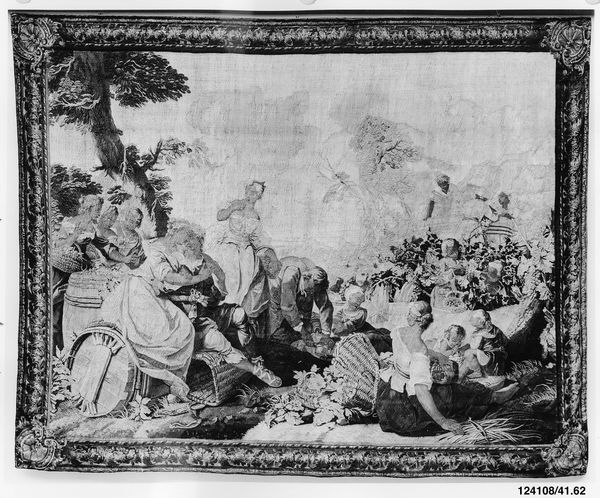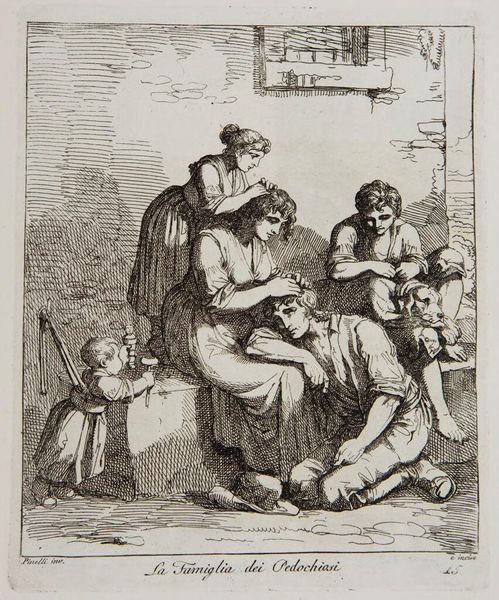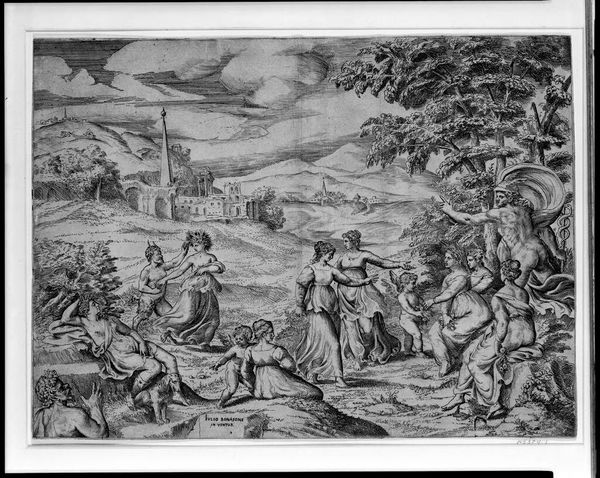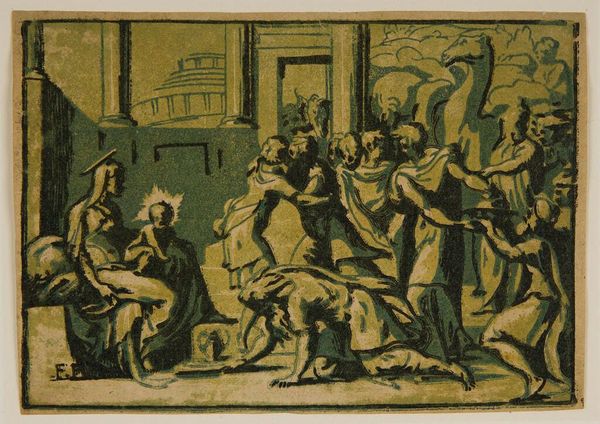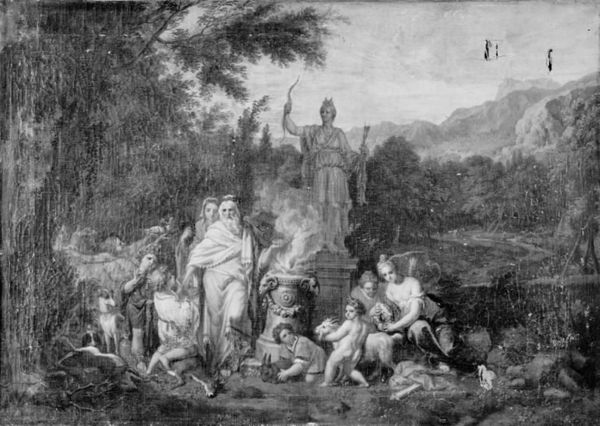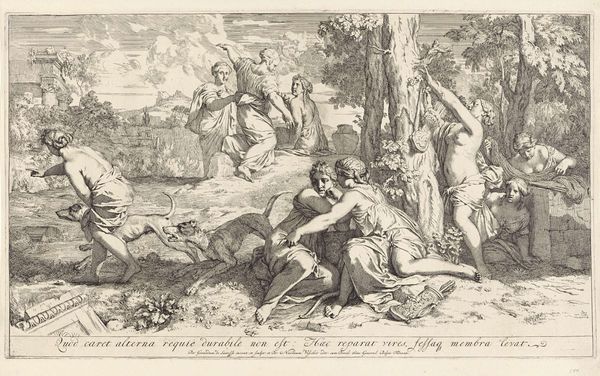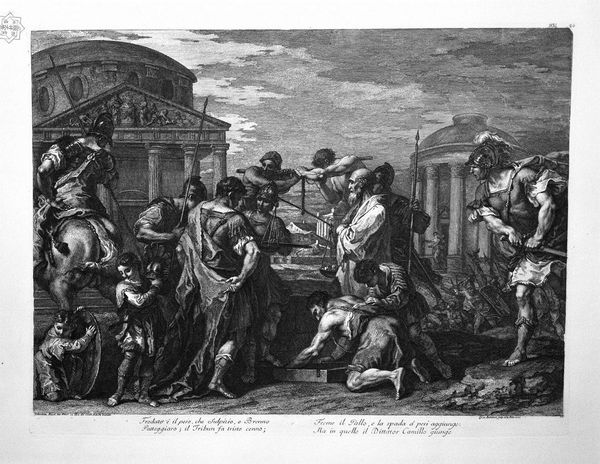
drawing, textile, sculpture, engraving
#
portrait
#
drawing
#
baroque
#
textile
#
figuration
#
sculpture
#
group-portraits
#
line
#
genre-painting
#
history-painting
#
decorative-art
#
sketchbook art
#
engraving
Dimensions: L. 17 1/2 x W. 24 inches (44.5 x 61 cm)
Copyright: Public Domain
Leonardus Quesi made ‘The Holy Family’ sometime between 1650 and 1750, possibly in South America, using wool and cotton. It’s a tapestry, a labor-intensive medium that involves interlacing threads on a loom to create a detailed image. The image is rendered entirely through the careful arrangement of the colored threads. It is not painted or drawn. This means that every line, shadow, and shape is a direct result of the weaver's skill and the inherent qualities of the wool and cotton. The texture, weight, and color of the materials define the artwork’s aesthetic, which appears very meticulous, precise, and stylized. Tapestry making was a costly, time-consuming business that often relied on collaborative work, especially within indigenous communities who were under colonial rule. It's important to remember the huge amount of labor involved in producing something like this. 'The Holy Family' is a testament to both artistic skill and social context, blurring boundaries between fine art and craft.
Comments
No comments
Be the first to comment and join the conversation on the ultimate creative platform.
